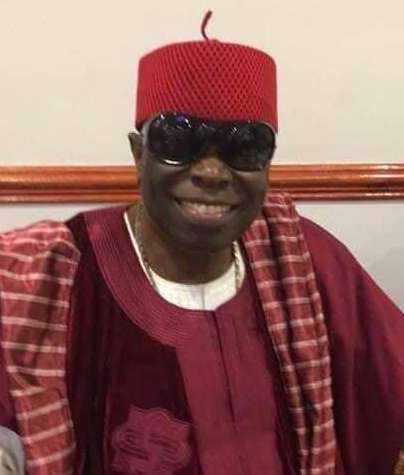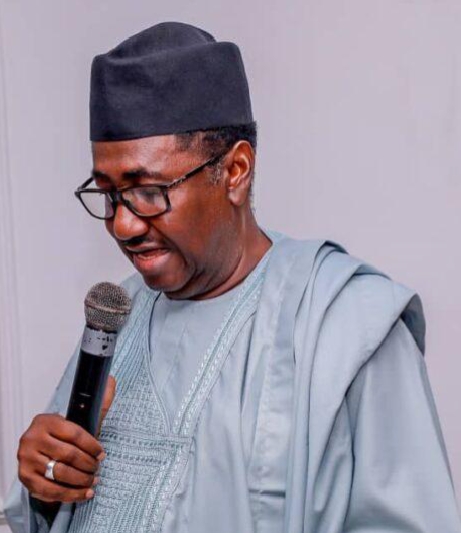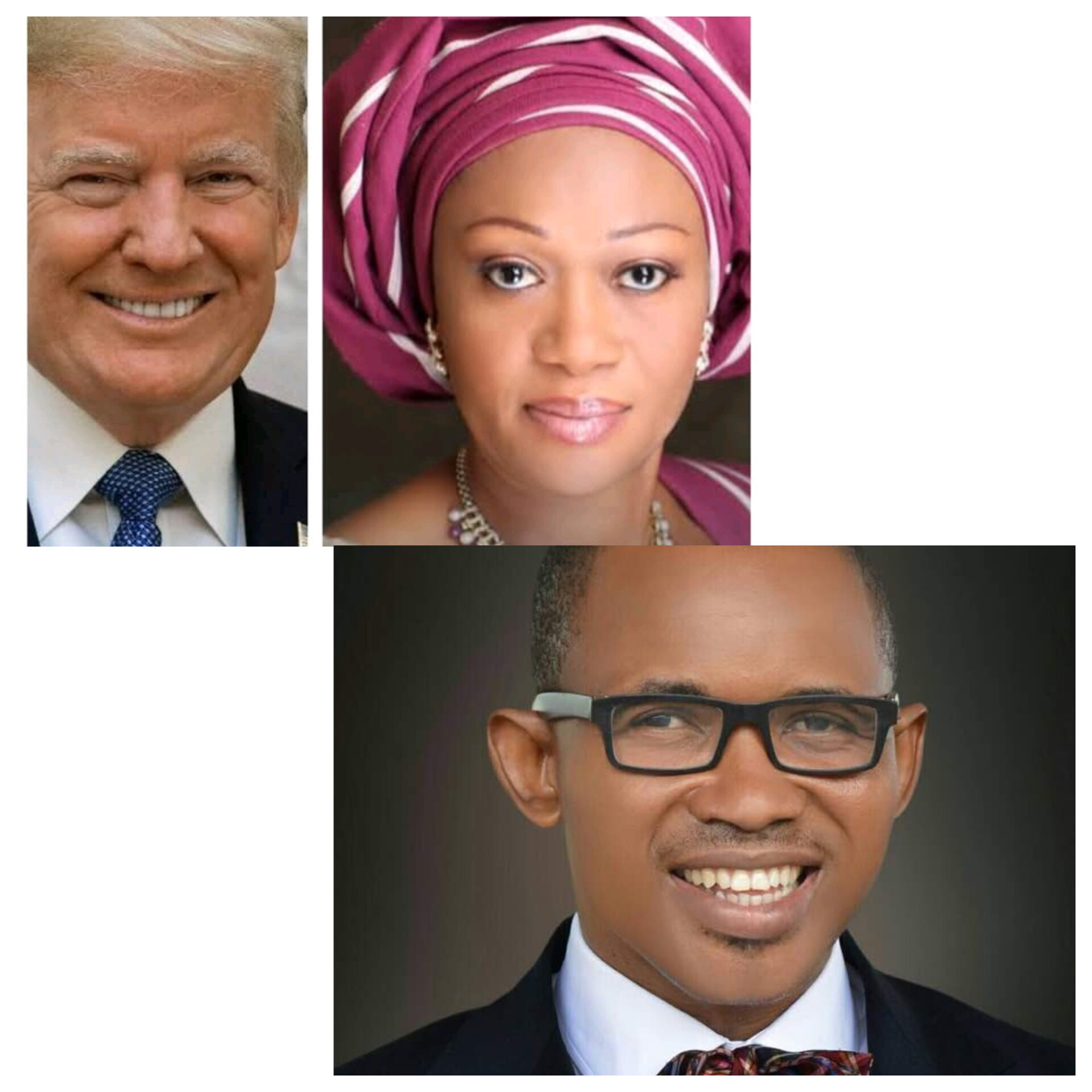Inside the Legend of Buhari: The truth, rumours, and the final goodbye. By Prince Dr Wumi Akintide

Inside the Legend of Buhari: The truth, rumours, and the final goodbye

The final message of Muhammadu Buhari, delivered through his wife, Aisha, was a plea to all Nigerians for forgiveness. It was a confession of sorts, a sober acknowledgment, made long before his death, that he may well have been the weakest link in the chain of Fulani presidential leadership in Nigeria.
At the same time, he remains arguably the most controversial, a figure future generations and historians will continue to analyse for decades to come.
Buhari pulled off a stunt that even Adolf Hitler could not manage and got away with it.

To this day, no one knows with certainty how, when, or where Hitler died, nor where his remains are buried.
More than three years ago, a rumour spread that Muhammadu Buhari had died in a London hospital and that his remains were secretly flown to Mecca for burial. This claim came from a Nigerian tabloid reporter who alleged he witnessed the burial in Saudi Arabia. That report, however, turned out to be a bogus lie.
In fact, it was Nnamdi Kanu, still languishing in detention to this day, who first floated the theory. His speculation was later echoed by my brother and brilliant Akure-born social media podcaster, Frank Bello. Frank, in both voice and presence, is the spitting image of his late father, Zachaus Andrew Bello (ZAB), the first indigenous head of the Engineering Department at Yaba College of Technology in Lagos.

Frank Bello maintains, in one of his widely circulated YouTube podcasts, that Muhammadu Buhari died over three years ago. According to him, the man now being mourned and buried by the Federal Government, and symbolically reburied by Atiku Abubakar, Nasir El-Rufai, and their political cohorts in what seems like a cheap shot at Tinubu’s government, was not Buhari at all, but a body double named Jubril, a Fulani man from Sudan.
Allegedly, this impostor was brought in to complete Buhari’s presidential term, as the Fulani political establishment, the powerful minority that has wielded influence in Nigeria since the 1914 Amalgamation was not ready to relinquish power after losing another Fulani president in Umaru Yar’Adua.
I wrote an article strongly disagreeing with both Nnamdi Kanu and Frank Bello. The man accorded a state burial a week ago by President Bola Ahmed Tinubu was, without doubt, the same Buhari I first met on January 3, 1968, the day I was posted to the Federal Ministry of Defence.
The Ministry then occupied the first to the eleventh floors of the Republic Building on Marina, Lagos, while the upper floors, 12th to 22nd, were home to the Federal Ministry of External Affairs, headed at the time by Okoi Arikpo as Federal Commissioner.
I was among the last set of Nigerian diplomats appointed in 1967, but our deployment was suspended on the advice of Chief Obafemi Awolowo, the Finance Minister. He advised General Yakubu Gowon and Okoi Arikpo that Nigeria had no business opening new embassies abroad in the middle of a costly and brutal civil war.
As a result, I was posted to the Home Service in the Ministry of Defence, while one of my fellow Foreign Service recruits, Isaac Ayewah, was deployed to the Ministry of Education. Another colleague, Paul Ayewoh, was sent to the Ministry of Communications.
Both Ayewah and Ayewoh would later return to the Ministry of Foreign Affairs and eventually became ambassadors.
I served as Assistant Secretary (Army) under Mr S.A. Ogunleye, an economist from Ijebu Ode, who was my boss and supervisor. He later became a Director at the African Development Bank in Ethiopia.
We served under Alhaji Damcida, and later, under Yusuf Gobir, a suave lawyer from Ilorin as Permanent Secretary. Mr B.G. Popo from Warri served as Deputy Permanent Secretary.
At the time, Muhammadu Buhari was a full Captain, acting as a Major in the military. Major Agbazika Innih served as Military Secretary, with Captain Ike Nwachukwu as his deputy. Mr T.P. Enodien was the Assistant Secretary (Air Force), supervised by Vincent Bello as Senior Assistant Secretary. I remember all these individuals as though we worked together just yesterday.
I was the civilian secretary to the Army Commissioned Officers Recruitment Panel, chaired by the late Lt. Colonel Murtala Mohammed. We all knew each other by first name, civilian or military as we were of the same generation.
I knew Muhammadu Buhari well. He did not die three years ago. It is true he suffered a critical illness at one point that many believed he would not survive, but by some miracle, he pulled through.
I later met him briefly at the United Nations during one of his rare international outings. He recognised me, and I recognised him. He paused momentarily to say hello on his way to address the General Assembly.
The man given a state burial by President Tinubu was indeed Buhari, not a body double. You can take that to the bank.
That he begged Nigerians for forgiveness through his wife shows he understood he had made serious blunders. Yet, I insist: Buhari was a good and honest man. He was one of the low-profile officers in our military who remained incorruptible until fate made him President, and he unfortunately appointed the likes of Godwin Emefiele as Governor of the Central Bank.
Emefiele completely undermined Buhari, making a mockery of his reputation as a morally upright, unblemished leader.
Buhari also made another grave mistake: he became the first Nigerian president to permit Fulani mercenaries from Fouta Djallon (West Africa), as well as Mali, Niger, and Burkina Faso, to enter Nigeria in large numbers without visas.
Worse still, he offered them blanket amnesty and integrated them into the Nigerian military. That singular action triggered a chain reaction whose full impact we may not see for years.
So yes, I understand why Buhari sought forgiveness. But the damage has been done and perhaps irreparably so. It may take nothing short of divine intervention to stop Nigeria from disintegration, as these foreign Fulani mercenaries now gain footholds in various states, especially in the South, where they are not only unwelcome but seen as threats to local communities and sovereignty.
I rest my case.
Prince Dr Wumi Akintide writes from Oyemekun Terrace New York City




